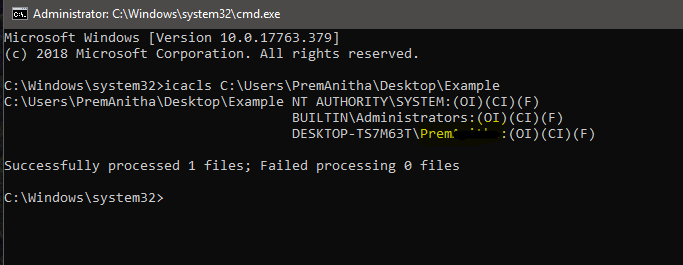
- #WINDOWS FIND FILE COMMAND LINE HOW TO#
- #WINDOWS FIND FILE COMMAND LINE INSTALL#
- #WINDOWS FIND FILE COMMAND LINE PATCH#
- #WINDOWS FIND FILE COMMAND LINE DOWNLOAD#
- #WINDOWS FIND FILE COMMAND LINE WINDOWS#
(It may also true of an xdg-open on Cygwin, if any, since it will have to Of the file, if it is a local executable file. Will execute that file, instead of running a trusted viewer

Note that some of the Windows-based commands listed above Making sure it does the right thing (and security issues)įirst, there is a basic security problem with the easy-to-use Package does not include xdg-open, so that does not help.
#WINDOWS FIND FILE COMMAND LINE PATCH#
I hope that someday the distributed version ofĪ patch to xdg-open so that it will invokeĬygwin does include a slightly related package with the name When you are running mintty, you can press control-left-button, On Cygwin you want to use cygstart instead.
#WINDOWS FIND FILE COMMAND LINE INSTALL#
(If you use Cygwin, install mintty immediately it’s wonderful.) The Cygwin mintty command line, but explorer does. Note that start does not directly work on
#WINDOWS FIND FILE COMMAND LINE WINDOWS#
(Cygwin runs on top of Windows, and thus inherits many Windows defectsīecause although that may be faster, it will often choose the wrongĪpplication (in particular, it will fail to use the user’s preferred browser). This is the same problem that Windows has, for the same reasons Opening the file will execute that program. In general, use xdg-open you’ll save your sanity andĪ simple approach is the cygstart command, i.e.: Gnome-open is not the right program to use.Īfter all, if the user is using KDE, then it’s the KDE settings May be using KDE to invoke it in that case User interface, you could call that program (e.g., gnome-open) directly.įor example, you may have written a GNOME program, but the user If you know for certain that a user is using a particular Which is reported to work fine on Solaris.īut if you must, an alternative is to directly invoke
#WINDOWS FIND FILE COMMAND LINE DOWNLOAD#
In many cases, the better solution is to download and install xdg-utils, Unfortunately, xdg-open isn't included with stock Solaris. Where appropriate, xdg-open follows the BROWSER convention. (These, in turn, find the right program to use and invoke it). There are some other programs like mimeopen. (which on KDE 4 may in turn invoke dolphin), The “real” program for GNOME is gnome-open This (and similar wrappers) were developed by the Varies widely depending on user preference. Opening program(s), but you should use xdg-open instead because The xdg-open program is just a wrapper that invokes the “real” (the name of the package is xdg-utils on at leastįedora, Debian, and Ubuntu it may have a different name on some other This isn’t always installed, so make sure the (You can use “-a” to force a different application to run.) The related Windows commands assoc and ftype are usefulįor setting the file type (for a given file extension) and the open command “command extensions” are enabled, but as of Windows XPĪs usual, run “help start” to learn more about its options. Strictly speaking, redirection to other file-opening programs They see so many such dialogues that they've been Users typically neither understand nor care what these dialogues say, and Then you’ll be given a dialogue on whether or not to execute the file.īut this isn't very helpful in real life, because Is that if the executable came from the Internet,

So forcing its use seems like an bad idea.) (Indeed, Internet Explorer has a terrible history of vulnerabilities, Users presumably made their choice for a reason, so you should respect it. Selected Internet browser, and will always use Internet Explorer instead. If you invoke explorer directly, it will ignore the user’s Many Internet sources recommend using explorer instead,īut there are good reasons to not do that. (other than implementing the command yourself).

Problem, depending on how it's used, but I haven't found a secure built-in This makes start (and explorer) a potential security

I haven’t found a Windows command that will easily open files Start will execute that program, not open a viewer of it. Note that if it’s a local filename, and it’s executable, This is a built-in of cmd, so other programs can’t invoke it as “start”,īut other programs can invoke it this way: You want the start command when running a command line (cmd.exe) Of different platforms (Windows, MacOS, Linux/Unix, and Cygwin).
#WINDOWS FIND FILE COMMAND LINE HOW TO#
Here’s how to open files or URLs from the command line, on lots Navigating in that directory (use “.” for the current directory), You can then pass it a filename (to open that file using theĭefault application for that file type), a directory name to start This is really handy when you’re writing a program, because these are Nearly all operating systems have a simpleĬommand to open up a file, directory, or URL from the command line. How to easily open files and URLs from the command line How to easily open files and URLs from the command line David A.


 0 kommentar(er)
0 kommentar(er)
